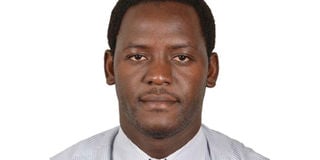Eradicate complacency to stop building site accidents

What you need to know:
Constraint. The cartels have made engineers to play second fiddle to powerful business contractors. Yet it is a game where they must be on top of things.
Just as we are recovering from the impact of a building that collapsed in October last year, another one under construction in Kansanga falls, with six fatal cases registered. A series of other building accidents in recent years can be traced to our embarrassment.
In 2020, you would consider that things should be getting better. But here we are once again, coming out of the rubble, to dust our image in order to start moving forward.
Does it teach us any lessons? I say, yes! But I say, complacency in Uganda’s building and construction industry is too high to be ignored.
Complacency is reducing us to being reactive, rather than proactive most of the time. Construction projects, like all others is about managing construction risks. And reducing risk to a state where it can cause no harm. Looking at the progress made since the famous J & M hotel in Bwebajja gave way in September 2004; the biggest win is that the National Building Standard, 2019 was promulgated. Other than that, we haven’t made nice strides. And our mitigations are always breached. Soon we will need to step the effort higher. Do you know that engineers’ responsibility to our society could pay great dividends, if the complacency is stopped? Today, I challenge the engineering professional body of knowledge that, like all others to stand up and make meaningful contributions.
The role that engineers play in shaping society is huge. Come out of the shell to avoid stumbling on heaps of debris. Engineers have to act professionally; offer guidance when called and enforce regulations if required. In today’s world, where accidents continue to cause embarrassment, the society expects engineers to develop the right attitude to be helpful to society’s engineering needs.
However, engineers’ reluctance to be helpful is beginning to force a lot of questions. And failure to provide answers will make the engineer equally culpable. Society feels like they are being neglected. The more reason engineers must strive to be helpful. To sensitise workers at construction sites about safe construction practices. Guide local artisans and offer training on how to identify unsafe work practices and mitigate them. Help construction workers to achieve their desired output by employing better working methods.
Talk about the latest technology to achieve cost effective products. Not cost defective ones. Guiding workers offers great learning and is beneficial. It makes an impact in maintaining a positive influence on projects that we supervise. Guidance enables mitigation of risks of harm that threaten the projects that we implement. Also, there is the duty to mitigate unethical conduct and dishonesty in the industry. Key among unethical behaviours is corruption and gamesmanship in bidding for and performing projects.
The cartels have made engineers to play second fiddle to powerful business contractors. Yet it is a game where they must be on top of things. Nowadays, you see engineers avoiding to speak up when invited to defend why certain projects must not (or must) go ahead. They even refrain from explaining applicable provisions of regulations to clients and society. Most importantly, engineers are unwilling to mentor upcoming youngsters to continue sustaining the technological ideas that they deliver.
This, plus failure to oppose politicians who selfishly explain things their way is not good for the future of engineering. The role of the engineer to society is more than just planning and putting in place beautiful products.
Within the code of conduct, engineers must be particularly keen on sharing their experiences and expertise so that everybody can read and practice from the same page. And the community will benefit from improved quality and quantity of services and products. The society will produce durable and good products to withstand natural forces.
Mone is a Civil Engineer, E-mail: [email protected]


